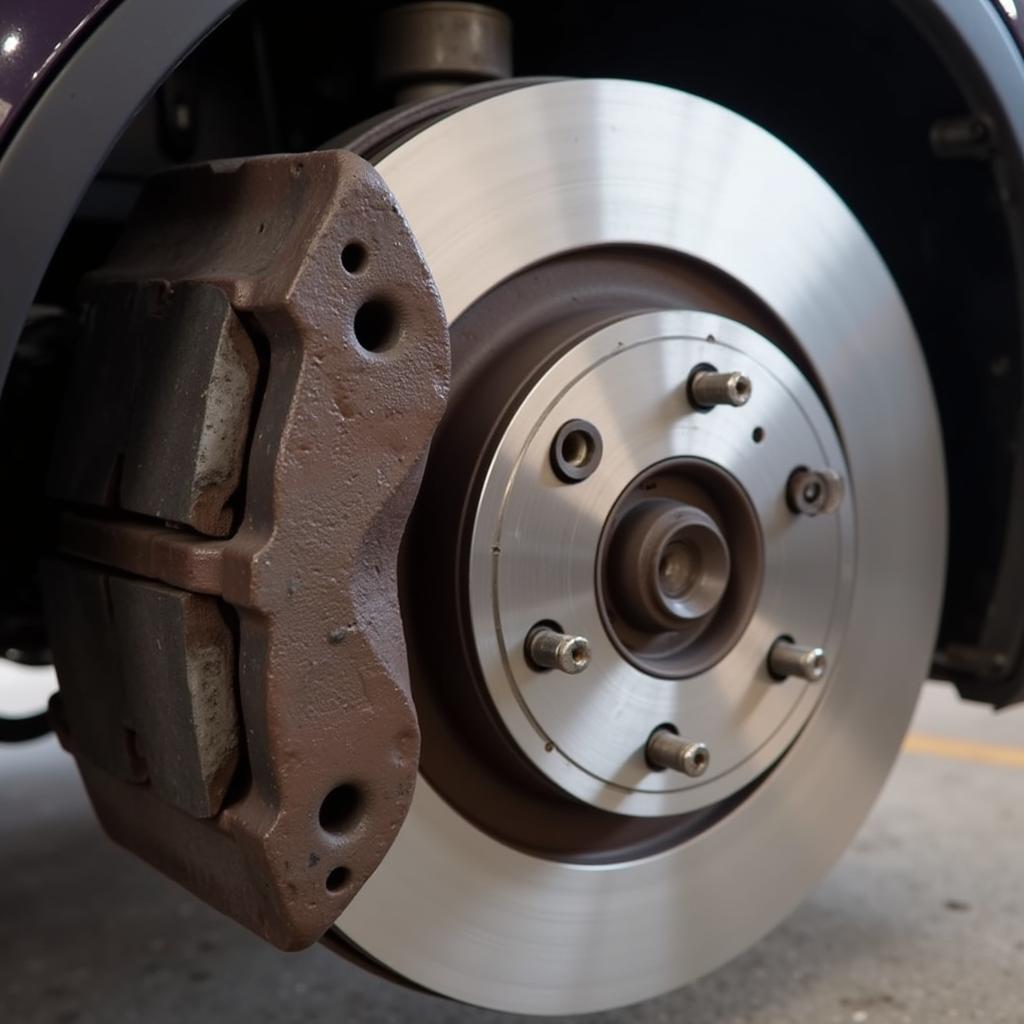That dreaded brake warning light on your 2004 Honda Accord dashboard can be a real headache. It signals a potential issue with your braking system, demanding immediate attention. This article dives deep into the common causes of a brake warning light in a 2004 Honda Accord, offering troubleshooting steps and solutions to help you get back on the road safely. We’ll explore everything from simple checks to more complex diagnostic procedures, providing you with the knowledge to address this issue effectively.
The brake warning light is designed to alert you to several potential problems, from low brake fluid to more serious issues like a malfunctioning ABS system. Ignoring it can lead to costly repairs or even compromise your safety. Let’s start by understanding the different reasons why this light might illuminate.
Understanding the Brake Warning Light
There are several reasons why your 2004 Honda Accord’s brake warning light might be on. The most common culprit is low brake fluid, which can indicate a leak or worn brake pads. Other possibilities include a faulty parking brake switch, a problem with the ABS system, or even a malfunctioning brake light bulb. Quickly identifying the source of the problem is crucial for effective repair.
One of the easiest things to check first is your parking brake. Make sure it’s fully disengaged. Sometimes, a simple oversight can trigger the warning light. Next, inspect your brake fluid level. This should be clearly marked on the brake fluid reservoir. If it’s low, you likely have a leak or worn brake pads. For more persistent brake warning light issues, especially those accompanied by other symptoms like a soft brake pedal, professional diagnosis is strongly recommended. For a similar issue in a different vehicle, see 2005 Chevy Trailblazer brake warning light.
Diagnosing Brake System Issues
If the simple checks haven’t resolved the issue, further diagnosis is required. This may involve checking the brake lines for leaks, inspecting the brake pads and rotors for wear, and testing the ABS system. A professional mechanic can use specialized diagnostic tools to pinpoint the exact problem. They can also determine the overall condition of your braking system and recommend necessary repairs.
A faulty ABS sensor can also trigger the brake warning light. This sensor monitors wheel speed and helps prevent the wheels from locking up during braking. If a sensor malfunctions, it can send incorrect signals to the ABS control module, illuminating the warning light. For intermittent issues, check out brake warning light on and off for more insights.
 Inspecting Brake Pads and Rotors on a Honda Accord
Inspecting Brake Pads and Rotors on a Honda Accord
Common Solutions for a 2004 Honda Accord Brake Warning Light
Once the problem has been diagnosed, the appropriate solution can be implemented. This might involve adding brake fluid, replacing worn brake pads and rotors, repairing or replacing a faulty ABS sensor, or addressing other issues within the braking system. Addressing the root cause is essential for long-term reliability and safety. Don’t just treat the symptoms; fix the underlying problem.
Remember, safety is paramount when dealing with your brakes. If you’re unsure about any aspect of the diagnostic or repair process, consult a qualified mechanic. They have the expertise and equipment to handle the job safely and effectively. If your 2004 Honda Accord brake warning light is on, don’t delay addressing it. For detailed information specifically on this model, refer to 2004 honda accord brake warning light.
Conclusion
A brake warning light on your 2004 Honda Accord should never be ignored. By understanding the potential causes, following the troubleshooting steps, and implementing the appropriate solutions, you can ensure your braking system is functioning optimally. Regular maintenance and prompt attention to warning signs can prevent costly repairs and keep you safe on the road. Remember, a properly functioning brake system is crucial for your safety and the safety of others.
FAQ
-
What is the most common reason for a brake warning light in a 2004 Honda Accord? Low brake fluid is often the primary culprit.
-
Can worn brake pads cause the brake warning light to come on? Yes, worn brake pads can trigger the light.
-
What should I do if my brake warning light stays on after adding brake fluid? Have a professional mechanic inspect your brake system for leaks or other issues.
-
How often should I check my brake fluid level? It’s a good practice to check your brake fluid level monthly.
-
Can a faulty ABS sensor cause the brake warning light? Yes, a malfunctioning ABS sensor can trigger the light.
-
Is it safe to drive with the brake warning light on? It’s not recommended. Have the problem diagnosed and repaired as soon as possible.
-
Where can I find reliable information about my 2004 Honda Accord’s brake system? Refer to your owner’s manual or consult a qualified mechanic.

